A new class of therapeutics to control vascular permeability
Exclusive license for unique pathway that underlies vascular dysfunction (vascular leakage) In acute stroke and myocardial infarction developed by Prof. Dr. Michael Simons and Dr. Federico Corti of Yale University
〰️
US patent regarding the unique VST-Bio First-in-Class Drugs target novel pathways selectively regulating vascular permeability predominant in inflammation- and injury induced vascular leak, without affecting normal vascular function.
〰️
Rodent models confirm that a single iv bolus of VST antibody is safe to use and completely blocks vascular endothelial growth factor (VEGF)-induced vascular leakage, and reduced significantly cerebral damage up to 40% in a rodent model.
〰️
NHP stroke models confirm that a single iv bolus of VST antibody against sdc2 is well tolerated and results in significant reduction of cerebral damage for 50-80% even when the MAb therapy is initiated late after stroke onset.
〰️
Awarded $4.5 M by Open Philanthropy for development the first iv antobody therapy to lmite cerebral damage in acute ischemic stroke patients.
〰️
Exclusive license for unique pathway that underlies vascular dysfunction (vascular leakage) In acute stroke and myocardial infarction developed by Prof. Dr. Michael Simons and Dr. Federico Corti of Yale University 〰️ US patent regarding the unique VST-Bio First-in-Class Drugs target novel pathways selectively regulating vascular permeability predominant in inflammation- and injury induced vascular leak, without affecting normal vascular function. 〰️ Rodent models confirm that a single iv bolus of VST antibody is safe to use and completely blocks vascular endothelial growth factor (VEGF)-induced vascular leakage, and reduced significantly cerebral damage up to 40% in a rodent model. 〰️ NHP stroke models confirm that a single iv bolus of VST antibody against sdc2 is well tolerated and results in significant reduction of cerebral damage for 50-80% even when the MAb therapy is initiated late after stroke onset. 〰️ Awarded $4.5 M by Open Philanthropy for development the first iv antobody therapy to lmite cerebral damage in acute ischemic stroke patients. 〰️
Highlights
Targeting Acute Ischemic Stroke and Myocardial Infarction
OUR VISION
Limitation of tissue damage by regulation of vascular dysfunction by a unique antibody therapy
VST-Bio’s team envisions a future where ischemic stroke and myocardial infraction no longer impose a life-threatening tissue damage or progression to neurological dysfunction or heart failure.
Today, the efficacy of potential therapy for these acute diseases is determined by the delay in presentation at a medical center after onset of symptoms. Frequently, medical therapy is not effective anymore when presented 4-6 hours after onset of symptoms, and only prophylactic medication is given to prevent a possible second harmful event.
Acute Cardiovascular Disease
VST BIO TECHNOLOGY
A true game-changer in stroke therapy
Our VST-Bio humanized antibody, delivered via a simple IV bolus infusion, reverses vascular dysfunction and selectively regulates vascular permeability. Vascular leakage is a co-morbidity seen in a variety of diseases including stroke, myocardial infarction, traumatic brain injury, reperfusion injury, ARDS/ COVID-19 infection, oncology, and shock. Vascular leakage leads to edema formation, inflammatory infiltration, and reperfusion injury due to oxidative stress, and leads to aggravation of cerebral damage following stroke.
A simple iv bolus of unique antibodies to normalize vascular dysfunction and cerebral edema:
OUR COMPANY’S DEVELOPMENT
5 years of R&D to establish a cutting edge therapeutic for modern cardiovascular medicine
2019 Ground breaking discovery and publication in Nature by the pioneers of vascular permeability regulation, Prof.Dr.Michael Simons and Dr.Federico Corti from Yale University of a molecular mechanism that regulates VEGF-mediated vascular permeability through (de)phosphorylation of Y951 of the VEGF receptor 2 (Corti et al, Nature Communications 2019)
Exploration of biological process and molecular regulation of vascular permeability and dysfunction at Yale University. Data published in Nature Cardiovascular Research
US patent submitted regarding the unique VST-Bio molecular mechanism to regulate vascular leakage in cardiovascular disease
2020 Founding of VST-Bio as a Yale University start-up Company
2021 Exclusive license of Yale University allowing all therapeutic rights related to molecular pathway to regulate vascular permeability (i.e. vascular leakage) to VST-Bio
2021 Safety and efficacy established in small and large animal models of stroke
2022 Generation of fully human and humanized antibodies that regulate VEGF Y951 phosphorylation through DEP1
2022 Data of therapeutic effect of VST MAb in Stroke published in Nature (Corti et al, Nature Cardiovascular Research)
2022 Establishment of feasibility, safety and efficacy in NHP model
2022 A single iv bolus significantly reduces cerebral damage by 50-80% in a large stroke model (NHP) as quantified by MRI (2DFlair)
Leadership
-

Kris Zsebo, PhD
CEO and co-Founder of VST-Bio
-

REBECQUE LABA
VP of Finance and Administration
-
-

David Cherish, PhD
Member of the Scientific Advisory Board, Director of VST-Bio
-

Michael Simons, MD
Member of the Scientific Advisory Board, co-Founder of VST-Bio
-

Anthony Ware
Member of the Board of Directors
The latest news from our company
Exclusive license for targeting the unique molecular pathway that regulates vascular dysfunction (hyper permeability or ‘vascular leakage’) through the VEGF receptor 2 (de)phosphorylation developed by Prof.Dr.Michael Simons and Dr.Federico Corti of Yale University to VST-Bio
US patent regarding the unique VST-Bio molecular mechanism to regulate vascular leakage in cardiovascular disease
NHP models confirm that a single iv infusion of anti-SDC2 antibody is well tolerated and results in complete normalization of vascular permeability
Rodent models confirm that a single iv bolus of anti-SDC2 is well tolerated and results in significant reduction of cerebral damage after stroke
NHP models confirm that a single iv bolus of anti-SDC2 is well tolerated and results in significant reduction of cerebral damage after stroke as measured by 2DFLair MRI
Awarded $4.5 M by Open Philanthropy for development of iv therapy to reduce damage and promote recovery in acute ischemic stroke patients.



